Summer has settled firmly upon opensource.com headquarters in Raleigh—just as it has throughout the rest of the United States—but our team has successfully avoided the scorching, 100-degree heat by spending time with some truely refreshing ideas. Our summer reading recommendations are eclectic, but each examines an open source spirit that drifts steadily beyond technology, like a warm breeze rippling through a field of blooming dandelions, depositing seeds of change in the areas of business, government, law, health, education, and life. (Sorry. I had to.)
Hopefully you enjoy these books as much as we have. Stay cool.
 Context
Context
by Cory Doctorow
recommended by Bryan Behrenshausen
Advocates of a free and open Internet can scarcely find a sharper champion than Cory Doctorow. This recent collection of essays by the science-fiction-author-cum-activist—culled from his regular contributions to publications like Locus, Publishers Weekly, The Guardian, Make, and, of course, Boing Boing—cements the writer's status as one of the most important commentators of our time.
Context makes a splendid follow-up to Doctorow's 2008 Content, though this volume focuses much more squarely on the craft of writing in the information age, the politics and economics of do-it-yourself publishing, and the intensification of battles for control of digital distribution platforms (iPad fans, take note: you won't find much love for your favorite device here). Essays such as the gloomy "When I'm Dead, How Will My Loved Ones Break My Password?" demonstrate that even professional futurists like Doctorow confront their own finitude (call it an occupational hazard). But other selections, like the witty and biting "Warning to All Copyright Enforcers: Three Strikes and You're Out," nicely balance the more introspective pieces (here Doctorow deftly turns the logic of three-strikes copyright penalty programs back on their proponents, insisting that organizations initiating at least three unfounded copyright infringement suits should have their Internet connections terminated). This is Doctorow at his best: insightful, scathing, yet wonderfully optimistic.
As is the case with Doctorow's other books, Context is available free of charge as a Creative Commons-licensed download.
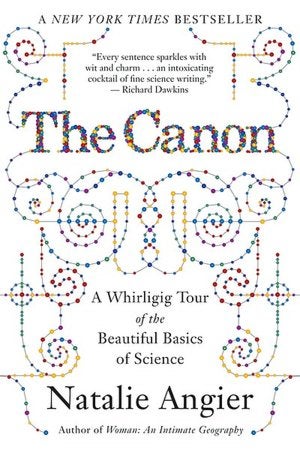 The Canon
The Canon
by Natalie Angier
recommended by Jen Wike
In The Canon, Natalie Angier tells us we should "count our lucky stars that the stars can be counted." Throughout, her message is that our universe is complex and chaotic, but accessible because there exists a certain amount of order that can be broken down into simple ideas.
Likewise, when applying the open source way to problems (even outside the world of software), we are better able to conceptualize them and extract information we can use. By collaborating with a host of scientists, Angier succeeds in sharing basic yet powerful theories and facts on cellular activity, Darwinism, tectonic plates and everything in between. So, if this summer you find yourself contemplating the stars during an outdoor movie or questioning how your body puts up with the heat on your evening run, pick up Angier’s The Canon, A Whirligig Tour of the Beautiful Basics of Science.
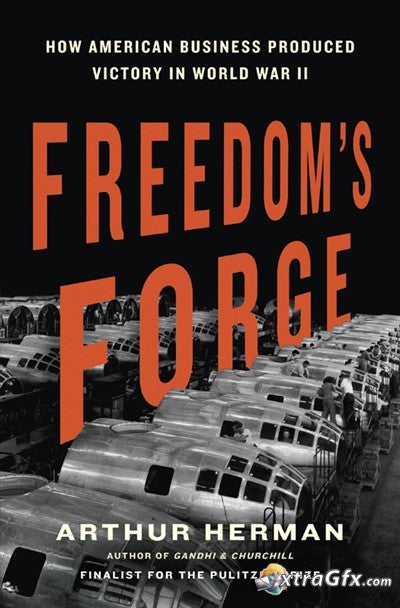 Freedom's Forge
Freedom's Forge
by Arthur Herman
recommended by Gunnar Hellekson
Herman gives the story behind the mobilization of American industry in World War II the attention it deserves. I knew, in vague terms, that the country made a remarkable transformation from the depths of the Depression to the world's most productive country in just a few short years. What I didn't understand, and what Herman so skillfully illustrated, was that this transformation was the result of a kind of dance between industry, which was both patriotic and profiteering, and government, which was intrusive and often inept.
The collaboration between industries is what's fascinating here. Dam-builders became boat-builders. Ford created airplanes. What made that flexibility possible, and the insight that the German and Japanese industrial base missed entirely, was that the problem wasn't the construction of a specific ship or bomber. The problem was the manufacturing process. Once Ford's master builders were brought to bear on the B-24 Liberator, they transformed it from a craft-based, hand-made activity into a carefully planned mass production system, going from 350 planes a year to over 650 planes a month. Their focus on interchangeable parts, a rational assembly line, and simplicity in production are still in use today.
I'm a software guy. Our current preoccupation with optimization and configurability are exactly contrary to the manufacturing lessons of World War II. Collaboration between industries encouraged more general approaches that incorporated the best ideas from all the partners and led to a truly astounding improvement in production methods that carried the country well through the latter half of the 20th century. The parallels with the open source process, and the lessons for the "IT assembly line" today are hard to ignore.
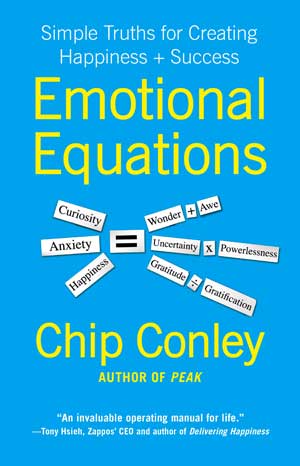 Emotional Equations
Emotional Equations
by Chip Conley
recommended by Jeff Mackanic
Equations and emotions—what a unique combination. This is a fascinating book for those of us who naturally gravitate to science and math.
Author Chip Conley is a very successful CEO and founded America's second largest boutique hotelier, Joie de Vivre Hospatality. During the 2008 economic downturn, Chip found himself paralyzed by his emotions. This book is the result of his journey to understand and manage those emotions.
On math and life, Conley writes: "Chaos is math theory, but it also describes how many of us feel in troubled times. As one who has spent my life doing the left-brain/right-brain tango, I have often grasped for what I now understand to be an Emotional Equation to give me full insight into what I was going through at home of at work to distill some basic truths in life."
Here is one of my favorite equations:
Suffering = Pain x Resistance
In life we might not be able to control the pain, but frequently we can control the resistance. If you want to reduce your suffering, try to reduce your resistance to zero. Interesting. As Conley says: "After using Emotional Equations, you will find that your emotions will no longer get the best of you. Instead, your emotions can represent the best in you."
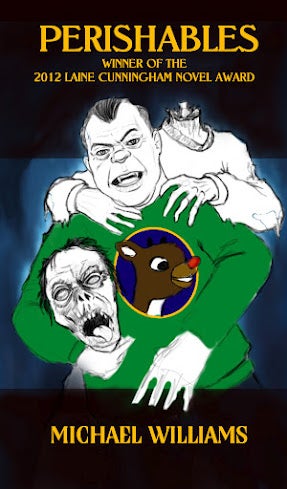 Perishables
Perishables
by Michael Williams
recommended by Melanie Chernoff
Perishables is a new, award-winning novel that offers a glimpse into the lives of two unlikely heroes—a vampire at his homeowners’ association board meeting and a female mainframe sysadmin on a college campus—who try to keep their wits and save their neighbors when zombies attack.
It is a delightfully short and quirky read. Oh sure, it contains zombies and vampires (isn't that all the rage?), but it pokes fun at things we all love to hate—McMansions, HOA boards, big box stores, annoying people on cell phones, bread pudding made out of Twinkies...what?
Even more compelling than the book, however, is the process whereby author Michael Williams is documenting his experience in self-publishing. Why? In his words, "No one online seems to be willing to give a guy a straight answer about how easy—or excruciatingly difficult—it is to sell a book so I’m going to find out for myself and let the world watch while I do."
In The Perishables Project, Williams shares cover art drafts from the artist he found through his Google+ network, the pains of editing for e-readers, and the opinions he’s gotten on how to price the novel. The book is available online only, but Williams promises, “All versions are DRM-free because I’m not a ninny.”
 Practical Open Source Software for Libraries
Practical Open Source Software for Libraries
by Nicole C. Engard
recommended by Jason Hibbets
Don't be fooled by the title of this book. Even though Nicole regularly writes for various outlets about open source for libraries, anyone interested in open source would enjoy this book, particularly someone just getting into open source.
The book begins with the basics of open source, then turns right to one of my favorite chapters on open source communities. The rest of the book details applications and specific use cases—such as web access, research tools, and library automation.
Even I learned about a few open source applications (like SubjectsPlus and Library a la Carte) that I had never heard of. Other features I enjoyed were the real-world scenarios and interviews that accompanied each chapter.
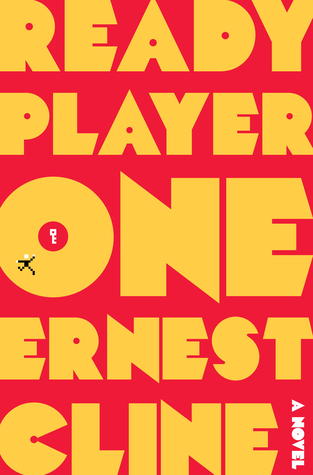 Ready Player One
Ready Player One
by Ernest Cline
recommended by Ruth Suehle
If you have any affection for 1980s pop culture, Ready Player One will no doubt find a place on your list of favorite fiction.
Released last November, the novel is set in 2044, and it's not a pretty future. The world is such a horrible place that many people prefer to spend time in the OASIS, a virtual world that's part video game, part Internet, part school—part whatever you're looking for.
Interestingly, the author twice refers to the OASIS as "open source," when—by any current definitions of open source software—it quite clearly is not.
At one point, he explains how the creators of the OASIS called it "an 'open-source reality,' ... You could log in and instantly escape the drudgery of your day-to-day life. You could create an entirely new persona for yourself, with complete control over how you looked and sounded to others."
At another point in the story, the main character expresses concern about a group called IOI getting control of the OASIS. IOI would charge a monthly fee for access and further monetize the environment. He explains, "User anonymity and free speech would become things of the past. The moment IOI took it over, the OASIS would cease to be the open-source virtual utopia I’d grown up in."
In reference to the code, the author writes that programmers at GSS (the company that created and owns the OASIS) are the ones with access to the code. In addition, the entirety of the OASIS can be deleted by one person with one button, which suggests that there's no copy of the code and no possibility of forking. But then, it may take a company the size of GSS, the OASIS' owner, to have enough storage for that much data.
What fascinates me about this usage of the term "open source" is that the author seems to be applying it to the way the community is built and works rather than the code of the program the community runs in. While of course we'd like to see the software open as well, an open community is a pillar of what we believe in at opensource.com, and it's great to see it referenced as an ideal in popular fiction.
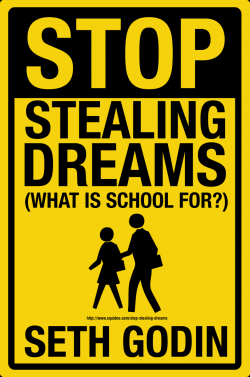 Stop Stealing Dreams
Stop Stealing Dreams
by Seth Godin
recommended by Mary Ann
Seth Godin's Stop Stealing Dreams is a manifesto written to catalyze the conversation around education reform. Godin takes readers through a quick history of our education system, explains why it is where it is, and then highlights why it isn't a sustainable model for today or our future. His overall goal in writing this piece is not to pretend he knows the answers but help accelerate the education reform movement—to educate more people on the topic and to inspire even more to get involved at whatever level they can.
You've probably heard much of what he writes regarding why we've outgrown our current educational system if you've paid any attention to this topic: Schools in the US were created to match the needs of the industrial revolution. As Seth puts it "Culture changes to match the economy, not the other way around ... Factories didn't happen because there were schools; schools happened because there were factories." The economy has changed dramatically since the industrial age, yet our school system hasn't. We aren't teaching kids to be successful in today's or tomorrow's workforce, and we definitely aren't setting the stage for more generations of innovators and entrepreneurs.
What I found really exciting about Stop Stealing Dreams is the importance Seth puts on the need for our education system to embrace the value of connections, building networks and communities, doing and learning versus memorizing, and passion. These are things that are so very natural in an environment modeled after the open source way.
Open source technology enables an ever-improving and connected world. The open source way provides a set of guidelines to such a world, and the open source community is notorious for attracting go-getters—those people who are interested in taking something and making it better. Oh, and by the way, Stop Stealing Dreams is free. You can download a web version, print version, and an e-book version.

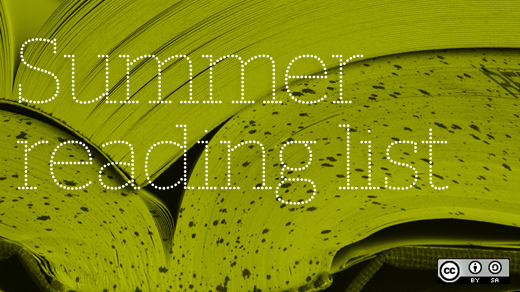

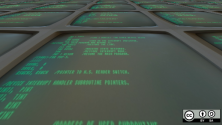
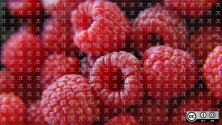
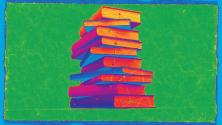

Comments are closed.